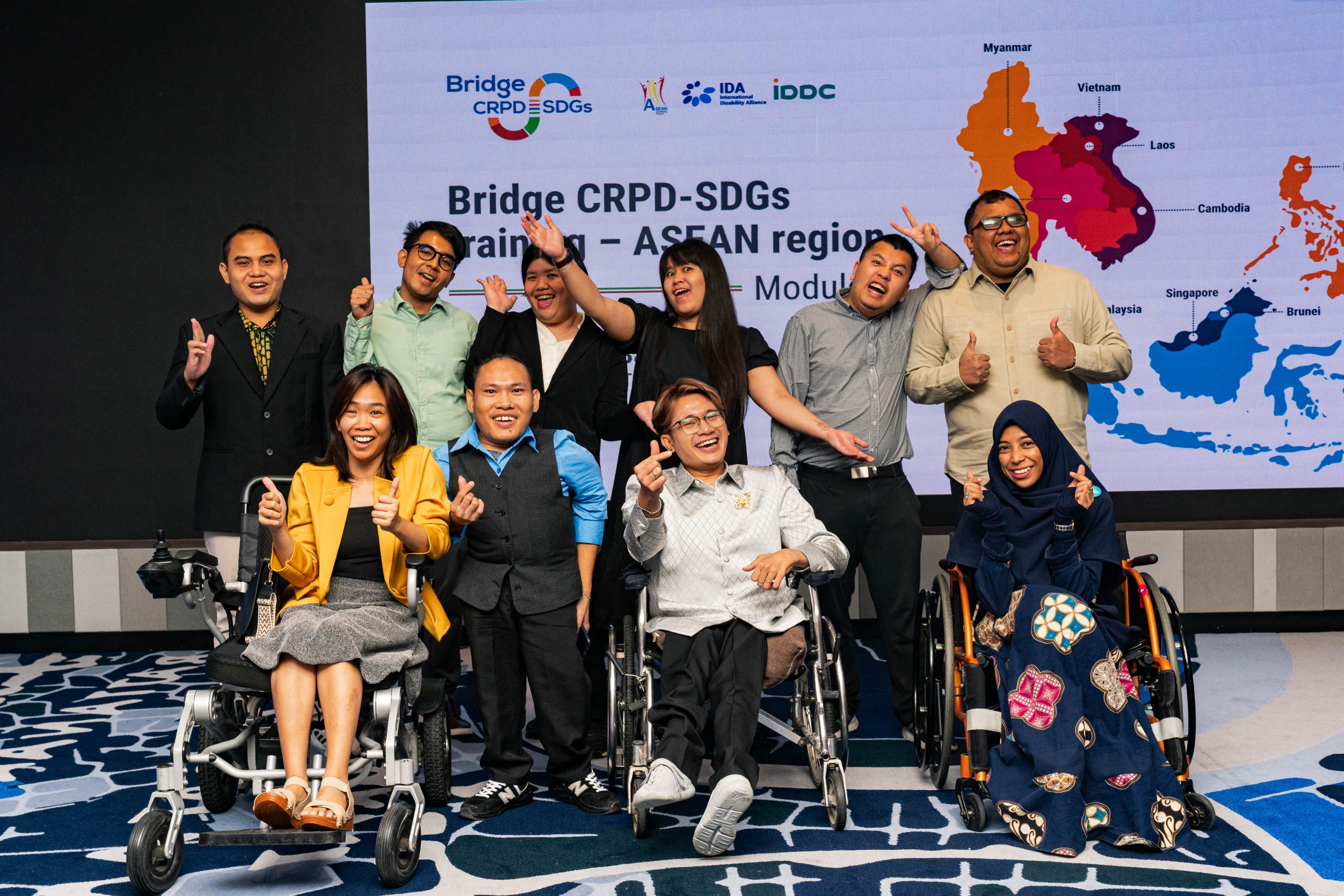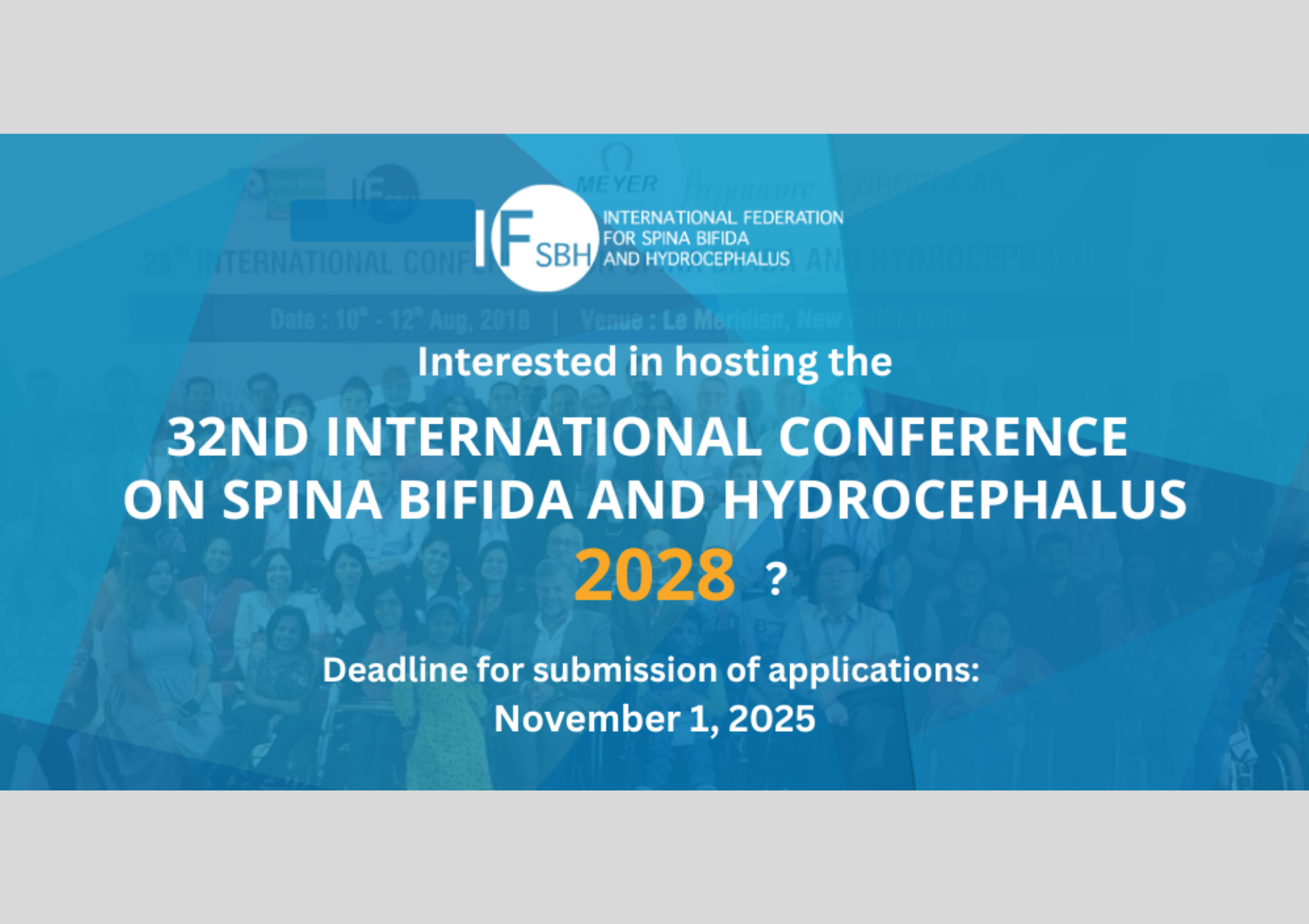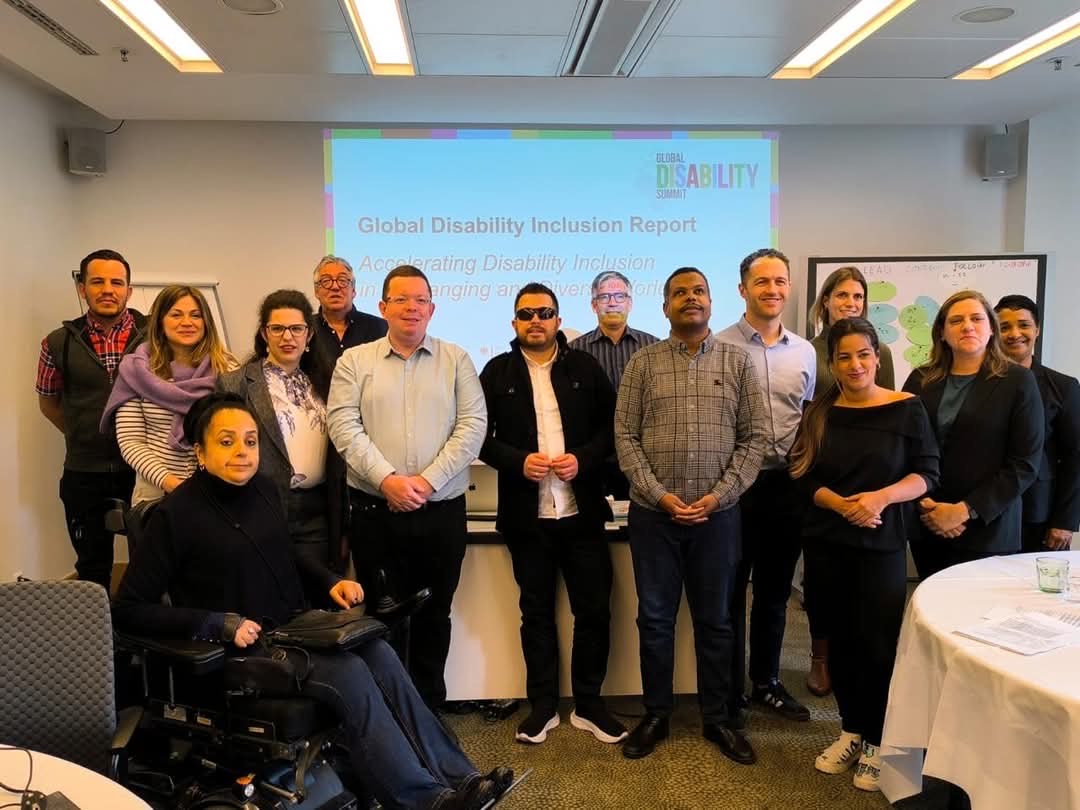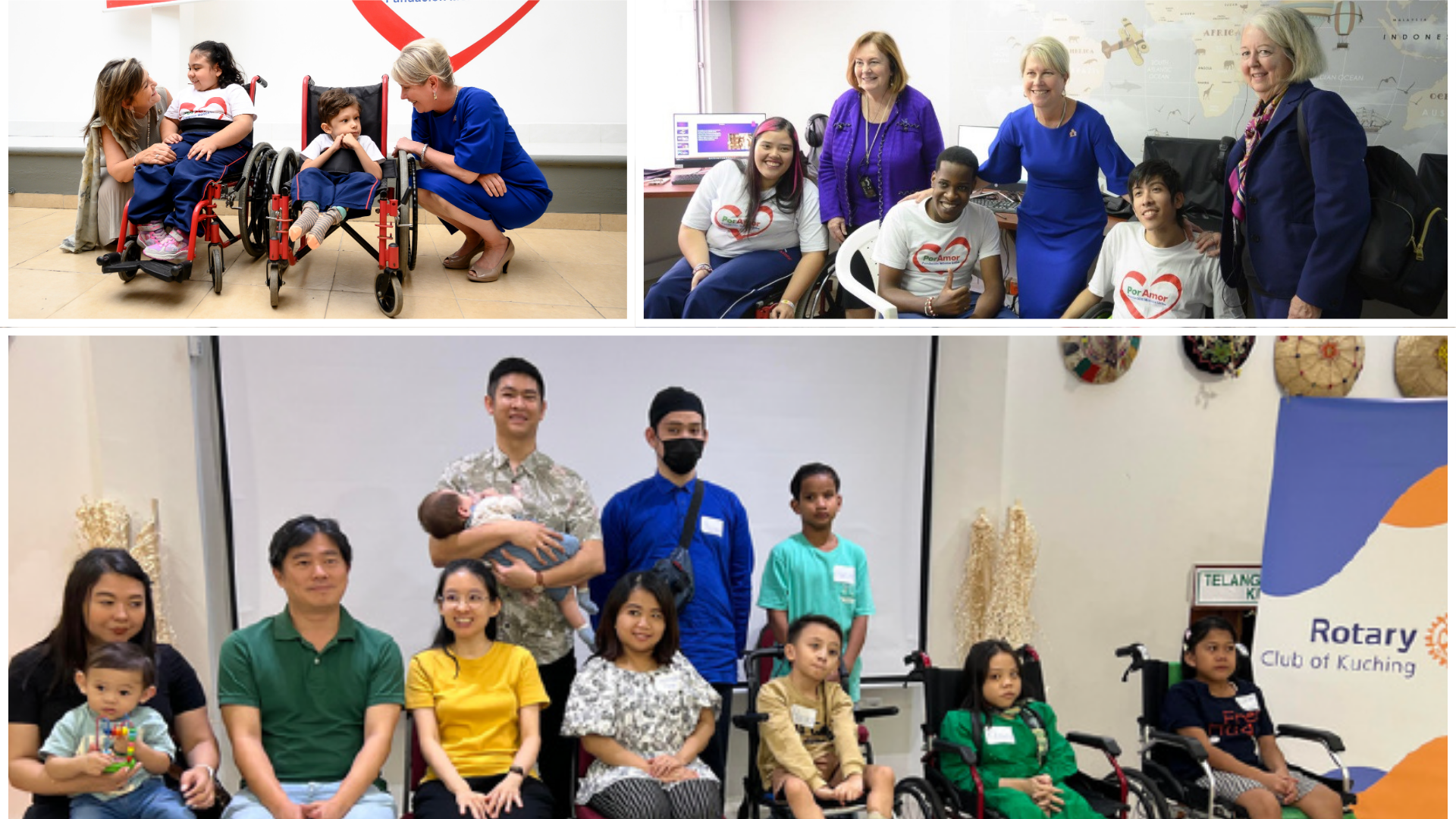 By Wardah Bagis, Komunitas Spina Bifida Indonesia
By Wardah Bagis, Komunitas Spina Bifida Indonesia
The Bridge CRPD-SDGs ASEAN training is an outstanding capacity-building program that convenes disability rights advocates, activists, and professionals from across Southeast Asia. Hosted by the International Disability Alliance (IDA), the International Disability and Development Consortium (IDDC) and the ASEAN Disability Forum, its primary goal is to strengthen participants’ understanding of the United Nations Convention on the Rights of Persons with Disabilities (UNCRPD) and its intersection with the Sustainable Development Goals (SDGs).
Held in Bangkok, Thailand, in February 2025, the training not only provided an enriching learning experience, but also served as a dynamic platform for cross-border solidarity, peer exchange, and meaningful collaboration. Participants had the opportunity to engage critically with global human rights and development frameworks, while reflecting on how these can be effectively localised to advance the inclusion and rights of persons with disabilities.
Strengthening Knowledge and Understanding
Throughout the training, we explored the foundational principles of the CRPD and how they align with the goals of the 2030 Agenda for Sustainable Development. The modules covered a broad array of topics, including the rights of persons with disabilities, the importance of adopting a human rights-based approach to development, and the need for enhanced regional cooperation among ASEAN member states. Interactive discussions and real-world case studies shed light on persistent challenges such as limited accessibility, inadequate inclusive education systems, and employment barriers for persons with disabilities. These sessions also introduced practical, CRPD-aligned strategies to address such issues.
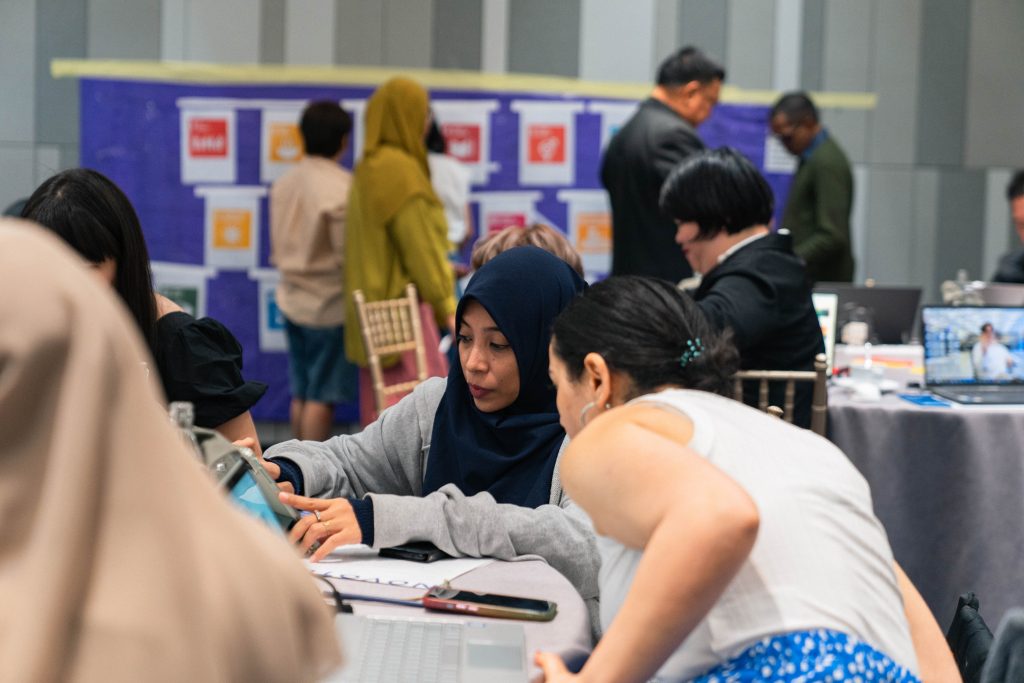
A Transformative Learning Experience
One of the most powerful insights I gained from the training was how the CRPD redefines persons with disabilities—not as passive recipients of aid, but as rights-holders and active agents of change in their communities and societies. This marked a significant turning point in my personal and professional journey. Prior to the training, I often approached disability issues through a welfare-oriented lens. The Bridge training shifted my perspective toward a rights-based approach, emphasising dignity, participation, and equality. This paradigm shift is especially relevant to my work with my community Komunitas Spina Bifida Indonesia. It has become increasingly clear to me that persons with disabilities must be meaningfully involved in policymaking and program implementation at both local and national levels. Prioritising inclusive education and accessible infrastructure has now become central to my advocacy efforts, as these are fundamental pillars of inclusive and sustainable development.
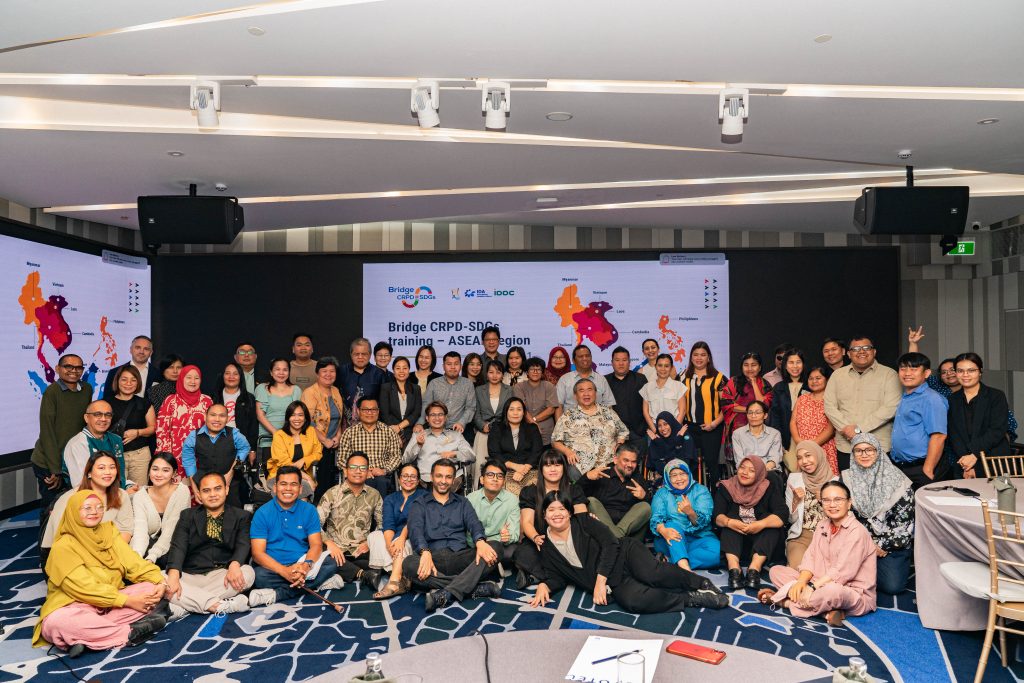
Lessons Worth Sharing
A key takeaway from the training is the critical role of cross-sectoral and cross-country collaboration in realising the inclusive aspirations of the SDGs. Governments, civil society organisations, academia, and the private sector must work in partnership to ensure that no one is left behind. The training emphasised the importance of generating and utilising disaggregated data, as well as establishing effective monitoring mechanisms to evaluate progress and ensure accountability. Listening to the experiences and strategies of fellow participants from across ASEAN reinforced my belief in the value of shared learning and collective action. Despite differences in national contexts, we are united in our commitment to achieving a more inclusive and just society for all.
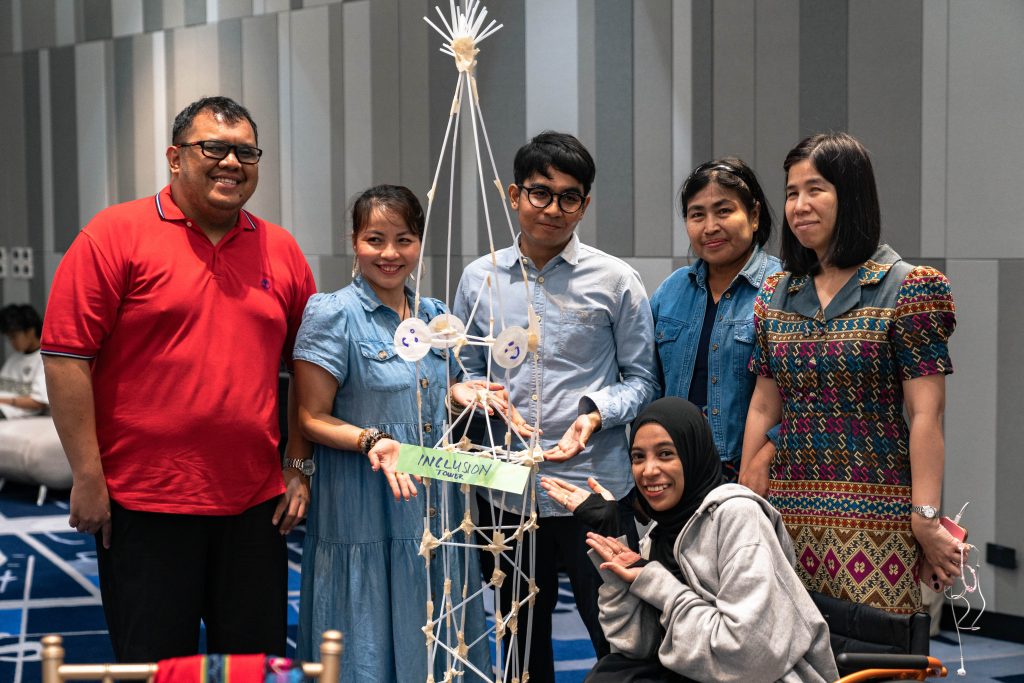
Looking Ahead: Translating Knowledge into Action
This training has provided me with renewed motivation and a clearer sense of direction in my advocacy journey. Moving forward, I plan to initiate concrete actions such as organising local workshops on disability rights, strengthening grassroots networks, and advocating for policy reforms that reflect the lived experiences of persons with disabilities. I also aim to undertake further research to identify policy gaps and explore practical ways to improve accessibility in public spaces and services. Above all, I am committed to creating spaces where persons with disabilities can speak for themselves and play an active role in decision-making processes. I am deeply grateful to the Komunitas Spina Bifida Indonesia for selecting me as one of the nominated participants for this training program and the International Federation for Spina Bifida and Hydrocephalus (IFSBH) for informing us about this incredible opportunity. I also extend my heartfelt appreciation to the dedicated facilitators and inspiring fellow participants who made this learning journey so impactful.


